SMERU Global Network
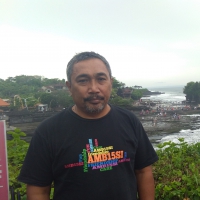
When I joined SMERU, Indonesia was in a period of economic crisis. As a lecturer, of course, I wanted to have research experience and I thought SMERU was one of the places where I could gain research experience on a larger scale.
The first experience was during the recruitment process, where I was probably the only applicant from outside Java. When I was accepted and later joined the other researchers, I gained a lot of experience, including the following.
- I gained the experience of collaborating with SMERU researchers from various disciplines.
- Due to SMERU's teamwork pattern, each researcher is allowed to lead a team for a particular study. Here each researcher is given the opportunity to become a team leader, and this was a very valuable experience.
- The research activities require researchers to see a problem from various perspectives and gain information from the research locations, compelling them to learn a lot.
- The technique of preparing reports that is tiered up to the final report, which is then distributed to stakeholders, requires accurate and accountable information because with this report, we also provide opportunities for stakeholders to discuss the research findings in more detail.
- There is pride when the recommended findings are adopted by the stakeholders (e.g., the government) in policymaking.
- Being a part of SMERU allowed me to get to know many parties, including government agencies, NGOs, and other parties which I may not be able to find in my current workplace.
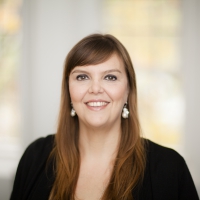
I joined SMERU as its first Australian Volunteers International (AVI) volunteer in 2000. I was keen to support its important work on understanding poverty and other aspects of well-being during the first years of Indonesia's political transition, during which time Indonesia was also experiencing the impacts of the Asian Financial Crisis of the late 1990s. It was one of the few trusted organizations conducting mixed-method on-the-ground research on poverty, cash transfers, and the rollout of decentralization at the time. This information was so important for informing policies and programs to tackle poverty.
I loved my time when I first worked at SMERU—it was a formative time for me and I am grateful for everything SMERU taught me, including how to be an effective field researcher! The team was warm and welcoming, and most importantly, was undertaking critical and inspiring work. It was wonderful to be able to contribute to that. Since that time, I have been lucky to continue to engage with SMERU in many ways as a part of a network of partners involved in the Knowledge Sector Initiative in Indonesia through providing initial peer feedback on many of its research projects on, for example, women's empowerment, and through SMERU's engagement with the University of Melbourne. SMERU has gone from strength to strength over the past two decades and I hope it will continue to play an important role in research and in informing policies in Indonesia for the decades to come.

SMERU is the best socioeconomic research institute in Indonesia on poverty, education, and health issues. For this reason, I think SMERU has the best ecosystem for researchers who want to obtain first-hand experiences in applying various social research methods.
I had the opportunity to learn a lot about various research methods, both quantitative and qualitative, which are still useful in my job.
The working atmosphere at SMERU is very conducive, where the research team, editors, operations, and management support each other so that SMERU can produce good research outputs.
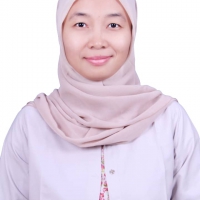
While waiting for my graduation day to come, I found a vacancy as a SMERU librarian on the campus internal mailing list.
I tried applying in hopes of getting a much better experience and income. Previously, I had juggled working while studying.
What I had in mind at that time was that SMERU was a research institution with very serious people. It would be like the atmosphere at LIPI. As it turned out, I found the atmosphere relaxed but smart. I learned a lot from my colleagues to work wholeheartedly but efficiently and thoroughly, plus in a happy and relaxed mood.
At SMERU, all members are seen equal. I saw how the director chatted loosely with the office boy and the rest of the staff. We are raised in the spirit of equality, and to be able to join SMERU was one of my best experiences in life.
One of the events that I shall never forget was when SMERU lost Mbak Wina, a bright and cheerful young researcher. The moment when Mbak Wina fell into a coma was felt by everyone in the office. When we were discussing the schedule to provide her with a companion while being hospitalized, she passed away. At that time, all staff cried, as each of them had an unforgettable memory with her.
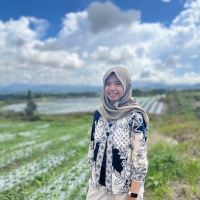
It was an honor for me to join a global consortium program called RISE (Research on Improving Systems of Education) Programme in Indonesia led by SMERU. RISE and SMERU gave us a huge authority as a researcher to learn and expand our knowledge both on research and networking skills. These surely are transferable skills that can strengthen our personal and career development.

I met and joined the remarkable RISE Program in Indonesia team led by Pak Darno and Daniel. I was inspired by young talented researchers that are passionate about fulfilling their call to contribute to Indonesia's development.

When I joined SMERU, I had just finished my master's program in the Netherlands and was very interested in joining the number-one research institute in Indonesia.
I learned a lot while working at SMERU. The work environment was also very warm and friendly. I started working as the first researcher with a public health background, after which many researchers were recruited and SMERU conducted more studies related to public health.
SMERU also opened the opportunity for me to get another scholarship and pursue a degree in the UK.
Now, as I work as a program implementer [at Plan Indonesia], the research experience I obtained at SMERU is still very helpful. Plan Indonesia has also conducted several joint studies with SMERU.

As a researcher and project manager at the time, I was looking forward to finding an international position in the area of research with focus on gender equality and human rights.
SMERU offered the opportunity and I was lucky to be accepted to fill the position.
I was placed among a team of enthusiastic, experienced, and dedicated researchers that were working there under a very experienced and professional management.
I found living and working in Jakarta quite pleasant, as I found the work environment to be a very friendly, welcoming, and sharing place for an expat.
The experience became the highlight of my personal, academic, and professional life.
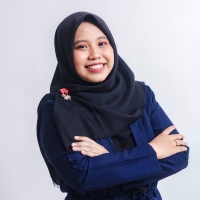
Joined SMERU because I believed that SMERU was the right place for me at that time, as I had limited research experience. It was a place that did not always provide comfort because I was constantly given the opportunity to work on new things, but it helped me grow and strive to be better than before. [An unforgettable moment was] when I could carry out all the stages of a new project, starting from a literature review, formulating problems, creating instruments, collecting data, processing data, and disseminating research results.

[I joined] Because I love being a researcher and noticed that SMERU is one of the best research institutions in Indonesia.
[At SMERU, I met] Mr. Darno, Mr. Asep, Mr. Syaikhu, Mr. Bambang, Ms. Anti, and other prominent figures who keep a low profile. I also enjoyed making friends with the staff. We are still friends even though I am no longer at SMERU.


